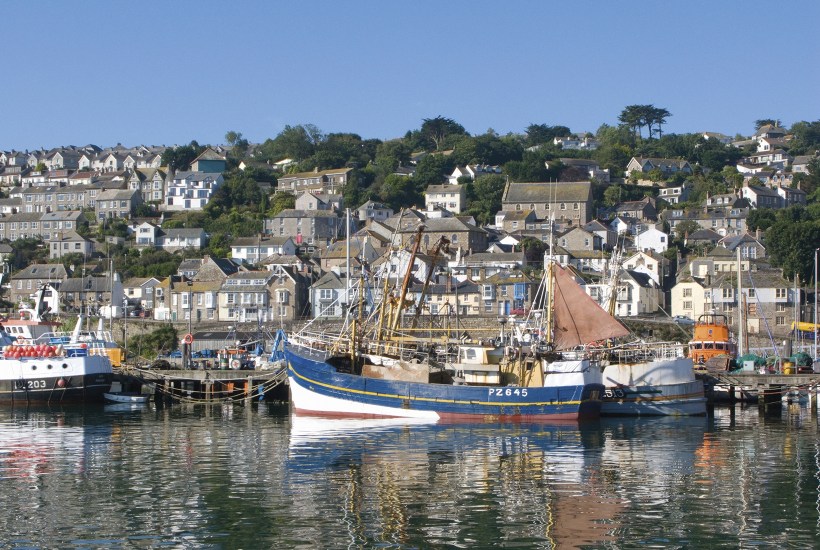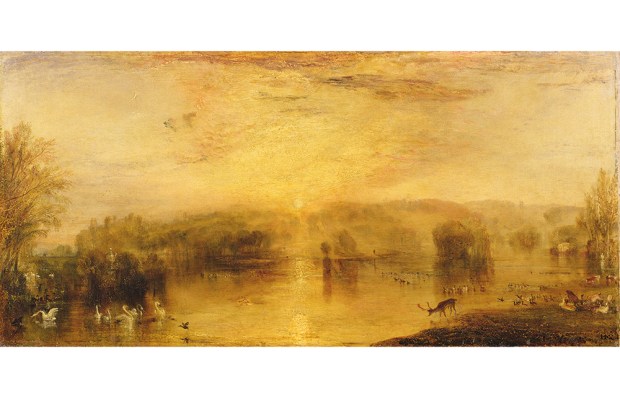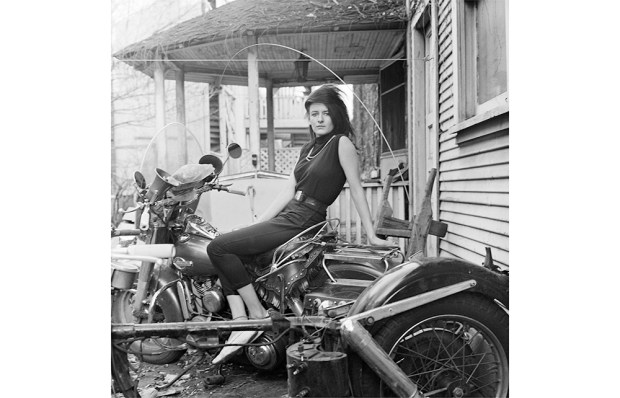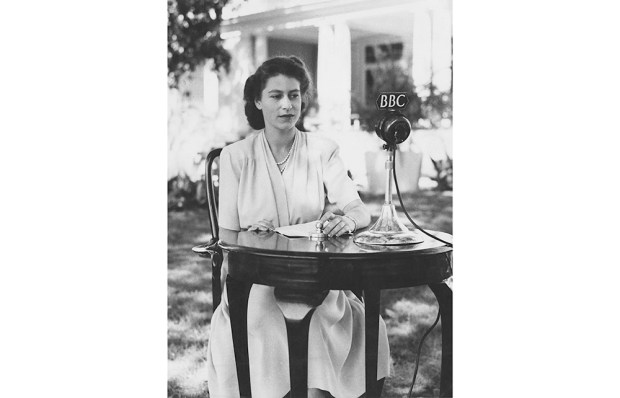Lamorna Ash came to the fishing port of Newlyn in south-west Cornwall to write a memoir. This is not unusual. There is a tendency, as old industries die, to watch them covetously and with awe; to paint them a paradigm of all that is lost. In the 19th century, fishwives posed for the artists of the Newlyn School on the quayside. Today, journalists are found at the Star Inn, which featured in Gavin Knight’s The Swordfish and the Star, buying pints for Ben Gunn, a ‘celebrity’ fisherman, for a tale.
Ash is a woman who can lose herself ‘along the simplest of paths’. She immerses herself in the real Newlyn, which is doughty, and the Newlyn of her imagination, which is mournful and filled with legends. She sails on the trawler Filadelfia with ‘Cornishmen born of salt’. She guts fish, spools gruesome testimony to their passing, hallucinates with seasickness and writes down fragments of her dreams, ‘the ghostly blue light shining on my words’.
The result is sometimes baffling — she is making myths, not observations — and sometimes touching. She does not belong here, although she wonders if, covered with scales, she is turning into a fish. I think the sea — her setting — is incidental. The real theme is loneliness:
I don’t know if loneliness has always looked like the sea on a colourless day, or if before that afternoon I just hadn’t had the image in my head to describe it, but ever since then, when I have felt at my most alone, I feel that flat stretch of ocean once again, feel it rise up and cover me over.
This is a young woman searching for something. For what, she doesn’t say.
I do not recognise the fishermen she describes, though I have met some of them. I agree that they sometimes have ‘heavily lined and intelligent eyes’, but I am not sure that these eyes ‘always retain some aspect of the sea within them’. They are, to me, both harder and more playful than Ash’s priests to Neptune, but then I see them in the Co-op buying snacks, or at Aunty May’s twitching for pasties.
When she reviewed Bait — a film about gentrification in Cornwall — Ash said that the watcher always changes the watched. She chooses to make the fishermen heroic and, though beguiled by her beauty, they sometimes object. One says to her: ‘Stop trying to romanticise us, all right?’ I would go further: Ash does not romanticise them, she fictionalises them. She does not write about the darker parts of Newlyn except obliquely — the drugs, the violence, the deaths. She is not good at betrayal yet. Everyone she meets in the town is delightful, though to be fair the undelightful probably refused to meet her.
On class, racism and Brexit she is speechless. If you want to understand the Cornish fishing industry, watch the BBC’s recent six-part documentary Cornwall: This Fishing Life, although it has none of the magic dust that Ash sprinkles so diligently throughout Dark, Salt, Clear.
Is fiction a better tribute than truth? The fishermen won’t care: they are thinking about pollock, or sex. Real or not, her sentences are glorious. She reaches in and pulls them out: ‘Sea men are always on the verge of falling. If one of their two worlds collapses, either on land or at sea, that balance is lost and he is in danger of losing himself.’ Or: ‘You are stuck in a not-quite-place, a saltwater place somewhere between the lower world and the world of men.’ I think she is projecting here, and it is not without beauty or power. I just wish she could place herself there.
Ash has written a mermaid’s book, then.What else would she do? It is half memoir, half reportage. She does real justice to neither, but it barely matters. Dark, Salt, Clear, though flawed, is singular; and it is only flawed because it is so ambitious. I sense in her a once-in-a-generation novelist. She may for now be tethered to good manners, the literary canon and self-doubt, but she is very young. She may not have found what she wanted in Newlyn — which she hints, but does not say, is closeness to her mother, who was born in Cornwall and named her Lamorna. ‘I fear the fast-approaching moment,’ she writes towards the end, ‘when I will have to acknowledge that not only am I not a woman of the sea, but that I am not a woman of Cornwall either.’
That is something, then, and she has found something else too: her gift. When she inhabits it fully it will be spectacular.
Got something to add? Join the discussion and comment below.
Get 10 issues for just $10
Subscribe to The Spectator Australia today for the next 10 magazine issues, plus full online access, for just $10.
You might disagree with half of it, but you’ll enjoy reading all of it. Try your first month for free, then just $2 a week for the remainder of your first year.















Comments
Don't miss out
Join the conversation with other Spectator Australia readers. Subscribe to leave a comment.
SUBSCRIBEAlready a subscriber? Log in